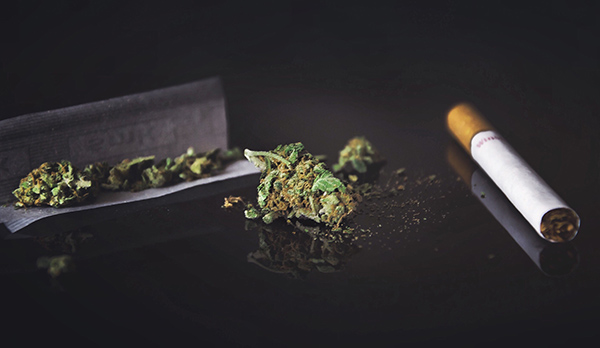
Cannabis Cigarettes Alcohol | Fifth Ave Green House
New national poll shows Americans believe cannabis is safer than cigarettes and alcohol
More and more people believe that cannabis is safer than e-cigarettes, alcohol and opioids.
According to a new national poll by the American Psychiatric Association (APA) and Morning Consult, Americans generally agree that cigarettes are unsafe (84 percent) and addictive (87 percent), yet one in five (21 percent) say they smoke daily.
Large majorities believe that alcohol, opioids, and e-cigarettes are addictive. About two-thirds say alcohol and opioids are unsafe, and more than three-quarters say e-cigarettes/vaping are unsafe.
64% of respondents believe that marijuana is less addictive than other substances, compared to 87% for cigarettes and 84% for alcohol.
Nearly 40% consider marijuana to be very or somewhat unsafe, compared with 64% for alcohol, 66% for prescribed opioids and 84% for cigarettes.
The survey, which complements the association's monthly Health Minds* survey, was conducted April 20-22, 2023 among a sample of 2,201 adults.
The margin of error of the results is plus/minus 2 percentage points.
When asked about addiction, respondents indicated how often they consumed a particular substance or engaged in a particular behavior and whether they considered it safe and/or addictive. The result:
APA President Petros Levounis, MD, MA, said, “It is clear that we have gotten the message that cigarettes are dangerous and addictive” and that “we can help prevent more Americans from developing other potentially addictive behaviors, such as drinking alcohol and using technology.”
“Vaping, for example, is just as addictive, if not more so, than cigarette smoking. We can also make sure people are informed about our current safe and effective treatments for substance use disorders and behavioral addictions. Addiction treatments work.”
The APA is launching a year-round initiative to raise public awareness about addiction and substance-related disorders. It begins this month and will focus on e-cigarettes, opioids later in the summer, alcohol in the winter and technology next spring.
When American adults are asked their opinion on whether addiction is the result of personal weakness, they are split (47 percent say yes, 53 percent say no), but an overwhelming majority (93 percent) agree that substance use disorders can be treated, 76 percent agree that addiction is a medical disorder, and 76 percent agree that it is preventable.
A majority of adults (71 percent) said they would know how to help if they or someone they know was struggling with addiction. However, because of its connection to opioid addiction and safety, there is a gap between adults who have heard of naloxone or Nalcon, a life-saving medication now available over the counter, and those who know where to get it. Three in five adults (58 percent) say they have seen, read or heard of Narcan and/or naloxone, but only a third (35 percent) say they know where to get it in the event of an opioid overdose.
“In 2022, opioids caused more than 100,000 deaths,” said Saul Levin, MD, MPA, CEO and medical director of the APA. “While it is encouraging that the majority of Americans view substance use disorder as a treatable condition, we can do more to ensure more people and everyone in our communities know about and have access to naloxone because it can save lives.”
The results are consistent with changing public perceptions of alcohol, cigarette and marijuana consumption.
Fewer and fewer people view cannabis as a dangerous substance, and as more states legalize marijuana for medical and recreational use, this trend is only getting stronger. In comparison, education campaigns have led to a better understanding of the dangers of tobacco and alcohol, as well as the growing opioid epidemic.
American Psychiatric Association
The American Psychiatric Association, founded in 1844, is the oldest medical association in the United States. The APA is also the largest psychiatric association in the world, with more than 38,000 physicians specializing in the diagnosis, treatment, prevention, and research of mental illness. The APA's vision is to ensure access to high-quality psychiatric diagnosis and treatment.

Post a comment: